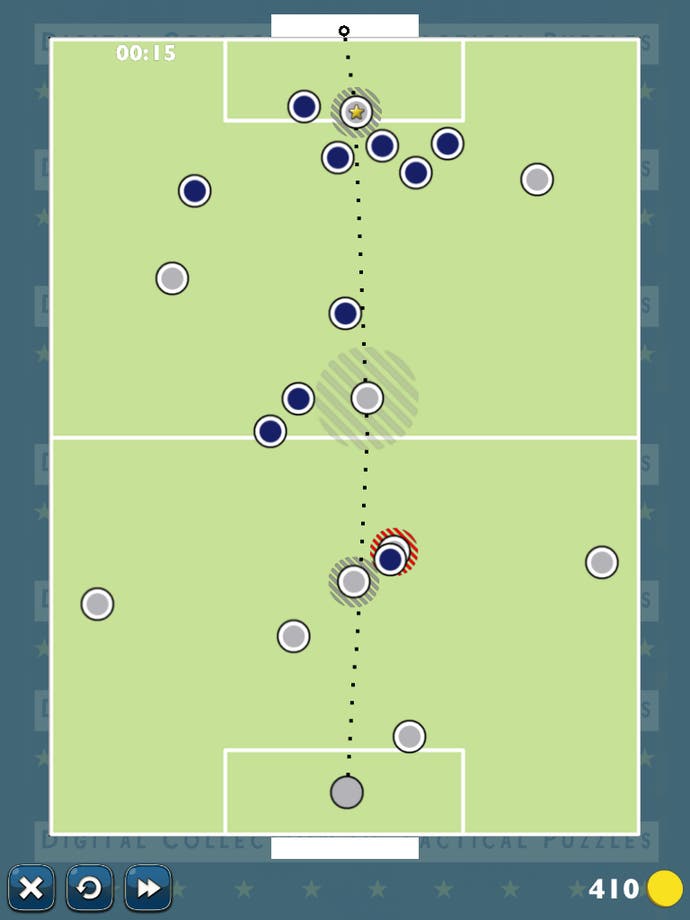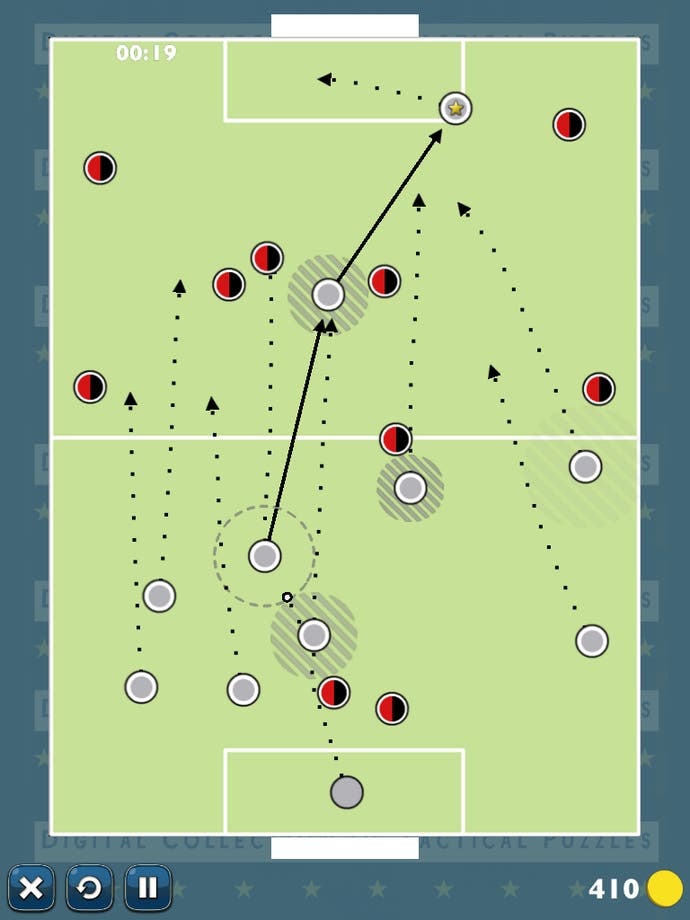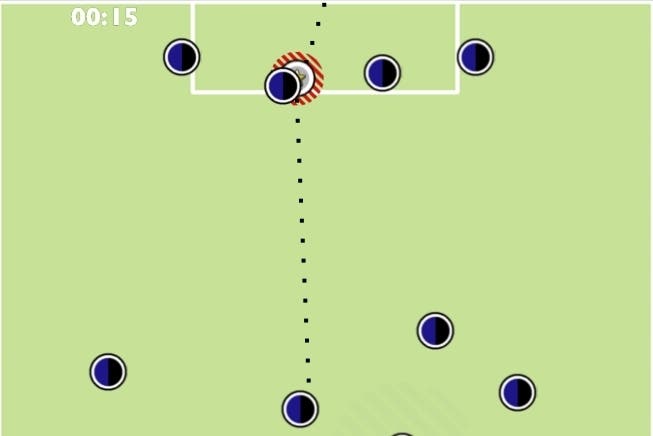The Football Playbook review
No silver linings.
It hasn't been a vintage football season. Following last year's high drama, improbable triumphs and ridiculous injury-time comebacks, we've witnessed what happens after the Lord Mayor's show. The Premier League was won four weeks early by a side even its own fans would admit was hardly at its best. Two of the candidates for the usually nail-biting relegation battle were decided by playing out a goalless draw so lifeless as if to ensure neither side would be missed. Pundits talk of the Champions League upsetting the natural order of things, but this is hardly the first time Barcelona have suffered a shock defeat in the semis. A season that began with so much promise has been steadily petering out as it has progressed.
And so we come to The Football Playbook, which promises a "digital collection of tactical puzzles" for the armchair Mourinhos out there. It, too, gets off to an encouraging start, with a title menu resembling an attractively weathered post-war football programme and a businesslike tutorial introducing smart, intuitive touch controls. Yet anyone touting a well-thumbed copy of Inverting The Pyramid hoping to prove they know the difference between their trequartistas and their false nines will be disappointed long before the final whistle blows.

Each challenge begins with your goalkeeper in possession of the ball, the idea being to score before time runs out. Players are represented by coloured circles, which can be dragged around to make runs, or tapped if you want to pass to them. Should you reach the penalty area without the ball being intercepted or the clock running down - both of which force you to restart the puzzle - any player in space will automatically shoot, and assuming there's no opponent blocking the ball's route to goal he'll score. While you can set any number of players in motion before your 'keeper punts it out of his area, on most levels you'll need to adjust on the fly, shifting runs all over the park to draw defenders out, freeing up gaps for teammates to take advantage of.
At least, that's the theory. The game claims you can exploit space anywhere on the pitch, but that's difficult when most puzzles see your opponents simply swarm backwards towards their own penalty area, forming a near-impenetrable wall of circles across the front of the box (I'll concede, it's a unique approach to zonal marking). Many stages end up looking like last season's finale, as Man City laboured to break down QPR's nine-man defensive barrier, albeit with none of the high-stakes drama that made that battle so absorbing.
Otherwise opposing players tend to follow the ball rather than tracking runners - and occasionally their reading of the game borders on precognition as they run to intercept a pass you've planned but not yet played. There are, as advertised, different formations and strategies, but few of them bear any resemblance to any real football tactics. At times you'll begin with an attacker bearing down on the goalie, but that merely restricts where you play your first pass. Often you're best simply launching every man you've got on a forward run, and passing it to a free player should any of the defending team decide to abandon their retreat and advance on the man in possession. An unrefined approach, sure, but it's one that bears fruit alarmingly often.

As too, does a sneaky tactic that exploits the game's fundamental misunderstanding of the offside law. As long as you're not offside when you receive the ball, you're free to hang around the penalty area, drawing a short line to nip back onside as the pass nears its target, before turning back around to score. Alternatively, you can counter most teams' rather narrow approach to defending by sprinting to the byline and cutting it back to a forward standing a couple of yards from goal.
It just doesn't feel like the sport it's intending to portray, and there's the rub. If you can accept that it's a puzzle game that happens to take place on a football pitch, then you might have some fun with it. And, at a base level, there is an element of genuine strategy involved. You do (sometimes) need to adopt different tactics against different sides, and you do need to consider how to maximise the meagre space you're afforded by the opposition. Even so, it's more about memorisation: playing a level until you've worked out where and when the gaps appear in their predictable movements and thus finding the optimum route to goal.
There's plenty of it, at least. A season has 16 matches with three goals in each, and there are 16 of them to beat, assuming you're prepared to pay after finishing the first. Yet with no meaningful context to any of the challenges it's difficult to care, unless you're particularly excited about competing against a set of different coloured circles. Like the 2012/13 campaign, then, The Football Playbook is unlikely to live long in the memory: it may be a reasonable proof of concept, but it's a long way from the beautiful game.

